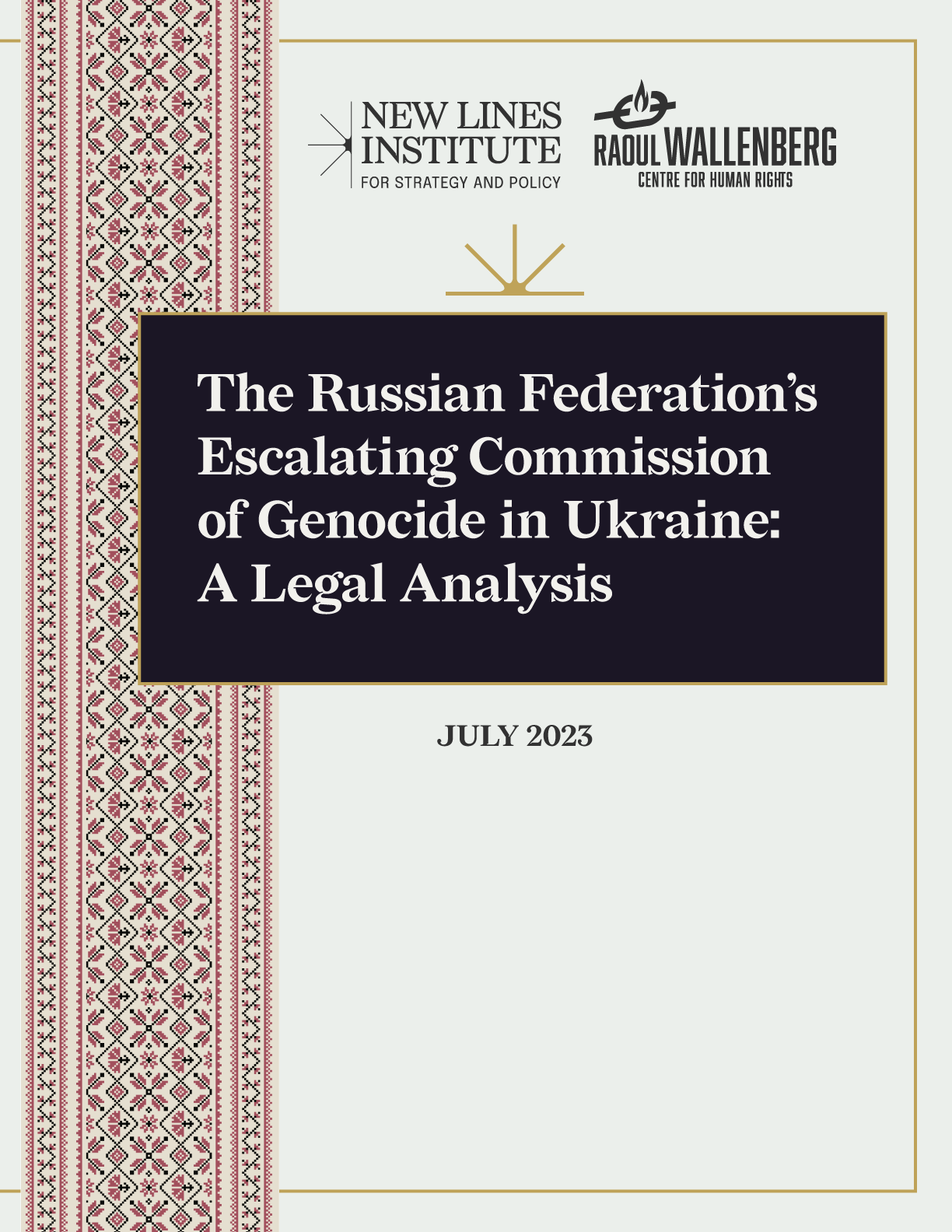In an era marked by a continued erosion of global peace and security norms, the need for
rigorous, evidence-based inquiries into serious allegations of international crimes has become
more crucial than ever.
Our initial report in May 2022 found reasonable grounds to believe that Russia had engaged in
direct and public incitement to commit genocide. This was done through the use of language
including “de-nazification,” “de-Satanization,” and the construction of Ukrainians as an
existential threat in attempts to warrant their destruction as a recognized, national group.
Combined with corresponding actions inescapably attributable to the Russian Federation, there
was already a “serious risk of genocide” – the threshold established by the International Court of
Justice for the duty to prevent stipulated in Article I of the Genocide Convention. Accordingly,
States party to the Genocide Convention should then have been acting preventively – if genocide
was not already being committed. Indeed, under customary international law, the international
community as a whole should have been acting.
This report – an updated independent inquiry into the Russian Federation’s involvement in
Ukraine – extends beyond incitement to the question of actual commission of genocide, separate
crimes under Art. III (c) of the Genocide Convention. The evidence presented compels us to
conclude that the Russian Federation has not only continued but escalated its efforts to commit
genocide. Beyond a serious risk of genocide, we conclude there are violations of the Genocide
Convention beyond a reasonable doubt.
The consequences of this finding are far-reaching and clear. The U.N. Convention on the
Prevention and Punishment of the Crime of Genocide is a binding agreement; it requires states to
prevent genocide once they become aware of the risk of it or should have become aware of the
risk of it. All the more so, logically, states should stop the commission of genocide.
In what follows, we demonstrate and underline the legal obligation of states to act with urgency
and sufficiency. We hope our findings will provide the necessary impetus to galvanize actions
toward upholding this foundational norm of contemporary international law.
-Dr. Azeem Ibrahim OBE
Senior Director of the Mass Atrocities and International Law Portfolio






